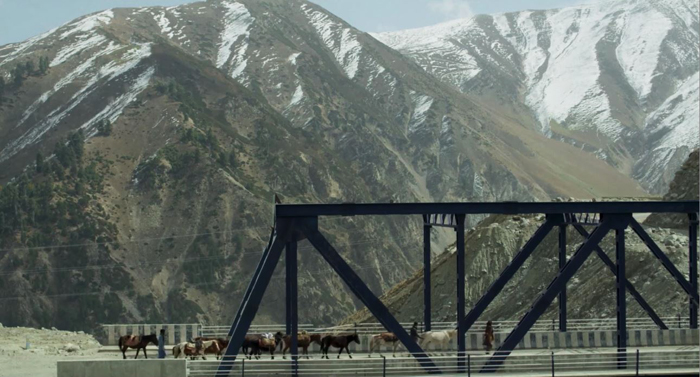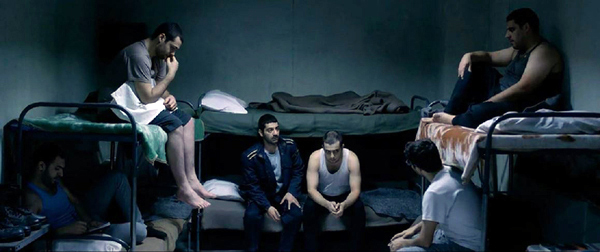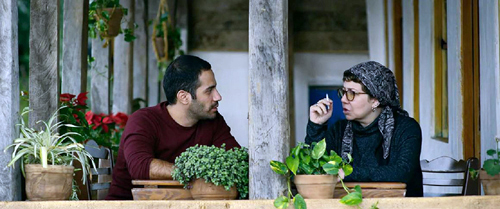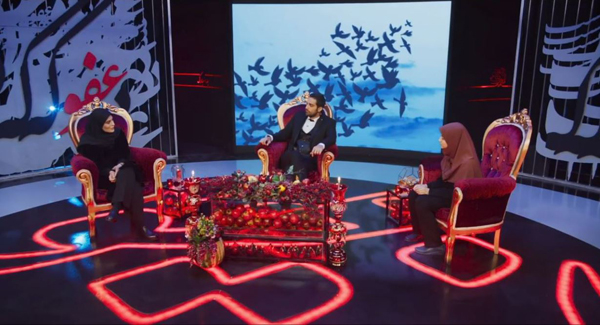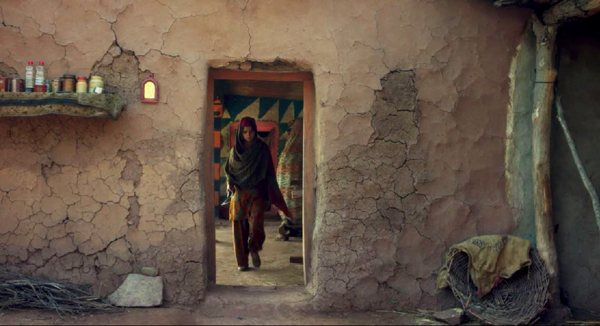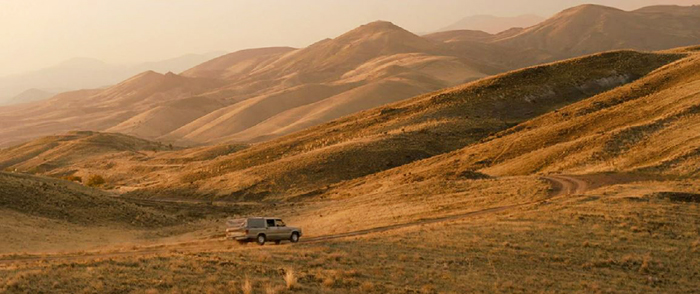Archive for May 2024
Repost of Vancouver: Three gems from Iran and India
The Shepherdess and the Seven Songs (2020).
Since David’s death, this blog has not been updated. I do, however, plan to occasionally re-post old entries if they become relevant to current events in the world of film. I also hope to post new entries as the inspiration strikes me.
This entry deals with Mohammad Rasoulof’s There is No Evil (2020), including information on his troubles with the government at the time. Since he has now gone into exile and had a new film, The Seed of the Sacred Fig, showing at Cannes, I hope this entry serves as a reminder of his earlier films. (Links below lead to other posts on his films, including The White Meadow and Manuscripts Don’t Burn.)
Kristin here:
Among the always bounteous offerings of the Vancouver International Film Festival, my favorite section is “Panorama,” since I enjoy seeing new films from countries all around the globe. Often some of these are from Iran, and the two Iranian films featured this year did not disappoint. The sole Indian film turned out to be an engaging, imaginative tale from an area of the world seldom represented on the screen.
There Is No Evil (2020)
Vancouver is in part a festival of festivals, drawing upon international films already premiered in Berlin, Cannes, Rotterdam, and other earlier festivals. Of necessity, this year’s items come from the pre-Coronavirus festivals, with films from Berlin especially prominent in the schedule. Mohammad Rasoulof’s There Is No Evil, Golden Bear winner as best film, continued the director’s regular contributions to past Vancouver festivals. (For entries on other Rasoulof films we have seen at Vancouver, see here and here.) Christian Petzold’s Undine, discussed by David in the previous entry, won the Silver Bear as best actress for Paula Beer.
There Is No Evil is a deeply ironic title, since its four self-contained episodes deal with one of Iran’s notorious evils, its record for executing its citizens. As Peter DeBruge pointed out in his Variety review, “According to Amnesty Int’l statistics, Iran was responsible for more than half the world’s recorded executions in 2017. The number has since dropped, but the country continues to kill its citizens at alarming rates.”
Often the process of carrying through executions is assigned to hired civilians or is forced to be performed by soldiers. Rasoulof explores various ways in which such executions affect the willing or unwilling people who carry out the orders, as well as the effects on people they know and love. I don’t want to spoil the slow development of these consequences for the characters by describing the plots of each of the four episodes in too much detail. Suffice it to say that the revelation of those consequences are worked up to very slowly and occur dramatically.
The four episodes are shot in quite different styles. Those styles are to a considerable extent determined by the fact that the episodes move to increasingly remote locales.
The first begins in a bustling city and is shot in a bright, ordinary style befitting the depiction of a bourgeois lifestyle, with appointments to pick up spouses and children, shopping trips, and alternately bickering and affectionate conversation.
The second episode abruptly switches to a gloomy, desaturated color scheme of grays and muted browns and greens suited to a film noir (above). This segment begins with a military man assigned to perform an execution panicking because he cannot face killing anyone. During this episode, the tone and even the genre switch abruptly twice, from film noir to thriller to … something else.
The third story has a soldier on leave visiting a family of old friends, including the daughter whom he loves and hopes to become engaged to. Here the film is done in a lyrical, bright style, emphasizing scenes in the lush woods and in the happy rural home of a couple who foster a group opposing the government. Here the soldier talks with the mother of the family.
The fourth episode centers on a couple who have retired to a bee-keeping farm in a remote, mountainous area. They must contend with the visit of a niece, but neither is willing to answer her questions about the past.
I think the style in this part pays homage to Abbas Kiarostami, with numerous shots of the couple’s pickup on winding country roads (see bottom). There’s a specific echo of The Wind Will Carry Us in the motif of the girl’s repeated attempts to find cell-phone coverage to call her parents abroad.
Given the relatively large cast and considerable number of interior and exterior locales, one might wonder how Rasoulof, under an order to stop filmmaking, could make a two-and-a-half hour film critical of government policy. DeBruge’s review, linked above, also comments: “By subdividing the project like this, Rasoulof was able to direct the segments without being shut down by authorities — who are more carefully focused on features — and, in the process, he also builds a stronger argument.” In an earlier Vancouver report, we noted that Rakhshan Bani-Etemad’s Tales (2014) used a network-narrative structure because she could only get permission to make a series of shorts–which she then wove together into a feature.
As DeBruge writes, the reliance on episodic structure does not handicap Rasoulof. The slow accumulation of indifference, regret, and guilt demonstrates that executions have unnoticed, unforeseen, and undeserved effects. The stylistic shifts emphasize the differences in those effects and maintain interest across a long film.
The effectiveness of Rasoulof’s film has not gone unnoticed, however, and a Golden Bear is clearly not enough to protect him. On March 4, he was summoned to begin serving his long-delayed prison term, despite the widespread incidence of COVID-19 in Iranian prisons. (On March 1, three days before the summons, Indiewire published a history of government strictures on Rasoulof.) Many official protests have been launched, and one can only hope that once again the result will be yet another suspension of the enforcement of the sentences against him.
Yalda, a Night for Forgiveness (2019)
Yalda is the second feature by Iranian director Massoud Bakhshi, whose first, A Respectable Family, we recommended as “an unexpected gem” when it played in Vancouver in 2012. Yalda is another film that comes to Vancouver via this year’s Berlin International Film Festival, where it was nominated for a Crystal Bear. It also played at the Sundance Film Festival, where it won the Grand Jury prize in the “World Cinema – Dramatic” category.
The film centers around one episode of a television series, “Joy of Forgiveness,” based on the premise that each week someone convicted of a crime seeks to be forgiven by the victim or a relative of the victim. Although not an actual law, such forgiveness is encouraged in Iran under Islamic law. If forgiveness can be obtained, the criminal is typically absolved of the crime. There are now charities, celebrities (including film director Asghar Farhadi), and other forces working informally to foster forgiveness and free guilty people, though this may include a payment of “blood money” given to the person doing the forgiving. (A real TV show based on this premise, “Honey Moon,” was the inspiration for Yalda.)
In this case, a young, shy working-class woman, Maryam, who had been married to a wealthy older man, has been convicted of killing her husband. She insists, however, that it was an accident. As the film begins, Maryam’s mother brings her to the television station. The young woman is terrified and declares she does not want to participate. But since this would mean a death sentence being carried out, her mother and the production team of the show ignore her protestations and hurry her through the preparations.
Representing the victim is Mona, his daughter, who, as the title of the TV series suggests, is expected to provide the standard happy ending to the show by forgiving Maryam. Mona seems to have reasons to do so, since she would receive the blood money proffered by “Joy of Forgiving” and is planning to emigrate from Iran in the near future.
So far we seem to have a situation familiar from the films of Asghar Farhadi, with two or more people at odds who are gradually revealed to be flawed and to some degree at fault. The situation then typically ends in reluctant understanding between or among the opponents.
As the host interviews the two women, however, he shows a distinct bias toward Mona’s viewpoint. Rather than pleading her case humbly, as the television crew expects, Maryam becomes desperate and accusatory. Her exchanges with Mona grow more heated.
The producers begin to panic. As one points out, this show is occurring on Yalda, a festival held on the day of the winter solstice. The longest night of the year is believed to be unlucky, and traditionally Iranian families gather to eat, tell stories, read poetry, and generally cheer each other up through the night. Seeing a sad ending to the program would badly disappoint the audience.
Telling his story in what is essentially continuous time and at a brisk pace, Bakhshi starts out by sticking closely to Maryam, building up considerable sympathy for her as everyone ignores her pleas and bosses her around. Once the program begins, the increasing hostility of Mona generates a suspense that is well maintained up to the final twists of the ending–twists showing that Bakhshi is not going for a Farhadi-style resolution.
The script is tightly constructed and engrossing, so much so that one could imagine a Hollywood remake–if a plausible legal situation could be devised as the premise.
The Shepherdess and the Seven Songs (2020)
The Shepherdess and the Seven Songs (director Pushpendra Singh) also was shown at the Berlin festival, in its Encounters section. It also won best director in the “Young Cinema Competition (World)” at the online competition for this year’s cancelled Hong Kong International Film Festival.
The film begins with a young man, Tanvir, struggling to lift and shoulder a heavy stone, a traditional test for a prospective husband among a tribe to which whom the beautiful shepherdess of the title, Laila, belongs. Soon a title is superimposed: “Song of Marriage,” the first of the seven songs. These songs are sung over the action–unsubtitled, unfortunately–and give a sense of the story taking place in some old folk tale. (Indeed, a title in the credits declares that the film is “Based on a Rajasthani folk-tale by Vijaydan Detha,” a well-known twentieth-century author of numerous such short stories.)
The fact that the tribes cook over open fires and follow what seem to be old traditions reinforces this impression, until a night scene where some of the men wield LED flashlights. Another title, “Song of Migration,” leads to a the journey of the nomadic tribe into which Laila has married herding their large flock toward the village that is their home base. They pass along modern highways, moving aside for traffic to pass, through landscapes that provide beautiful shots (see the top of this entry). This stretch of the film is lyrical and captivating, thoroughly drawing the spectator into the film.
Abruptly another modern touch, a radio carried by one of the men, thrusts the action into the troubled politics of the present. A newscaster declares, “In the Kashmir Valley protests against Article 5A have escalated.” Two protestors, he says, have been killed. The reference is to Pakistan and India’s dispute over control of Kashmir, and the Kashmiri struggle for independence from both. Laila, it later is revealed, is Kashmiri, while Tanvir’s tribe lives in an area controlled by India.
Laila’s beauty soon attracts the attention of the local Station-master and his subordinate, Mushtaq. They hint that as a Kashmiri she might possibly be a terrorist. This accusation comes to nothing, and Mushtaq’s clumsy attempts to seduce Laila lead to a switch in tone. A series of episodes, each a separate “song,” follow Laila promising trysts with him and then bringing her husband along on a pretext. Mushtaq’s continued gullibility in trusting that each new assignation is made in earnest lends a farcical comic touch to this lengthy passage of the film. At the same time, however, Laila is testing whether her husband, strong enough to lift the stone and win her as his bride, has the moral power to defend her rather than currying favor with Mushtaq by turning a blind eye to his designs on Laila.
I felt that the last portion of the film ran out of the energy it had sustained so well, since Laila is strong enough to turn her back on two unacceptable men but has no apparent sense of where to turn once she has done so. Still, overall The Shepherdess is beautifully filmed, as the frames at the top of this section and of the entry demonstrate. It also tells a thoroughly absorbing story.
So far David and I have reported on six films from this year’s Vancouver festival. Already it has become clear that our accumulated experiences from past years have allowed us to trace the development of promising young filmmakers into great ones and to discover promising new ones whom we hope to encounter at future festivals.
Thanks to Alan Franey, PoChu AuYeung, Jane Harrison, and their colleagues for their help during the festival.
There Is No Evil (2020).












